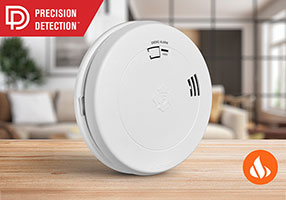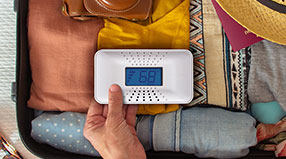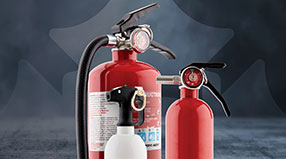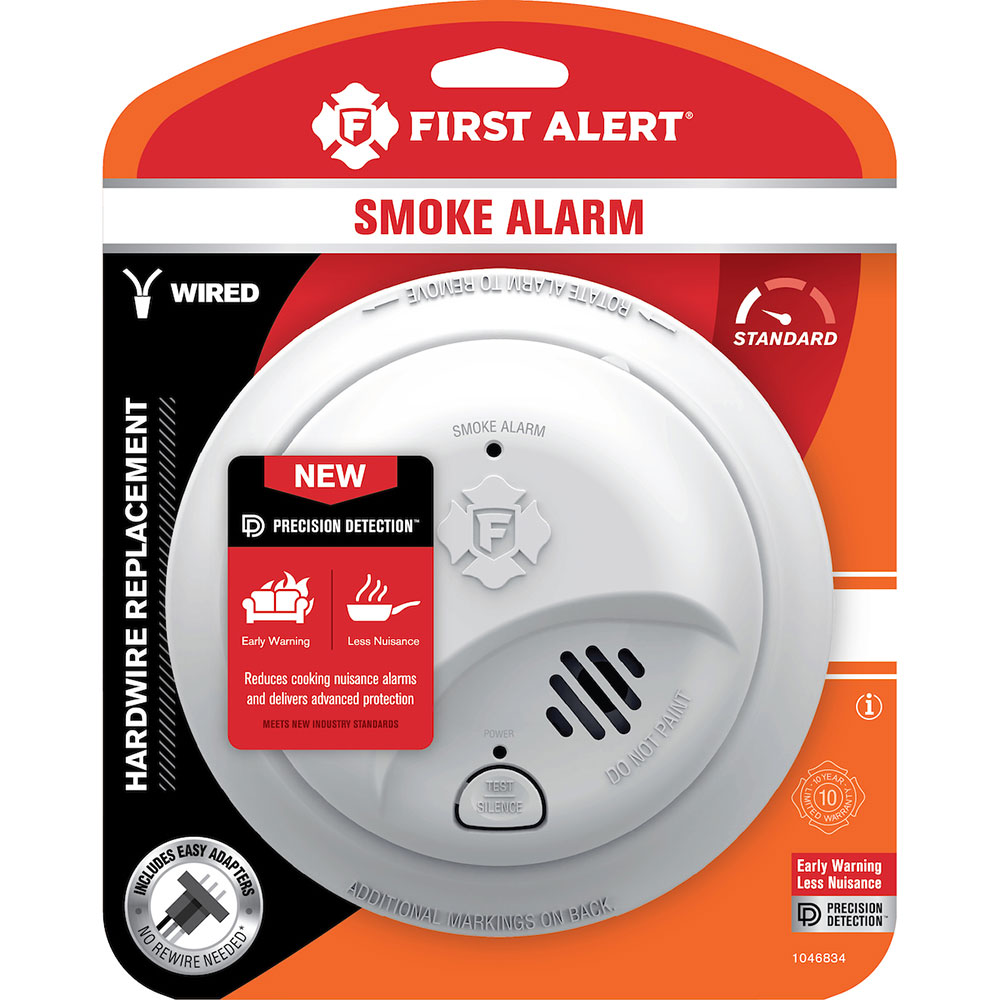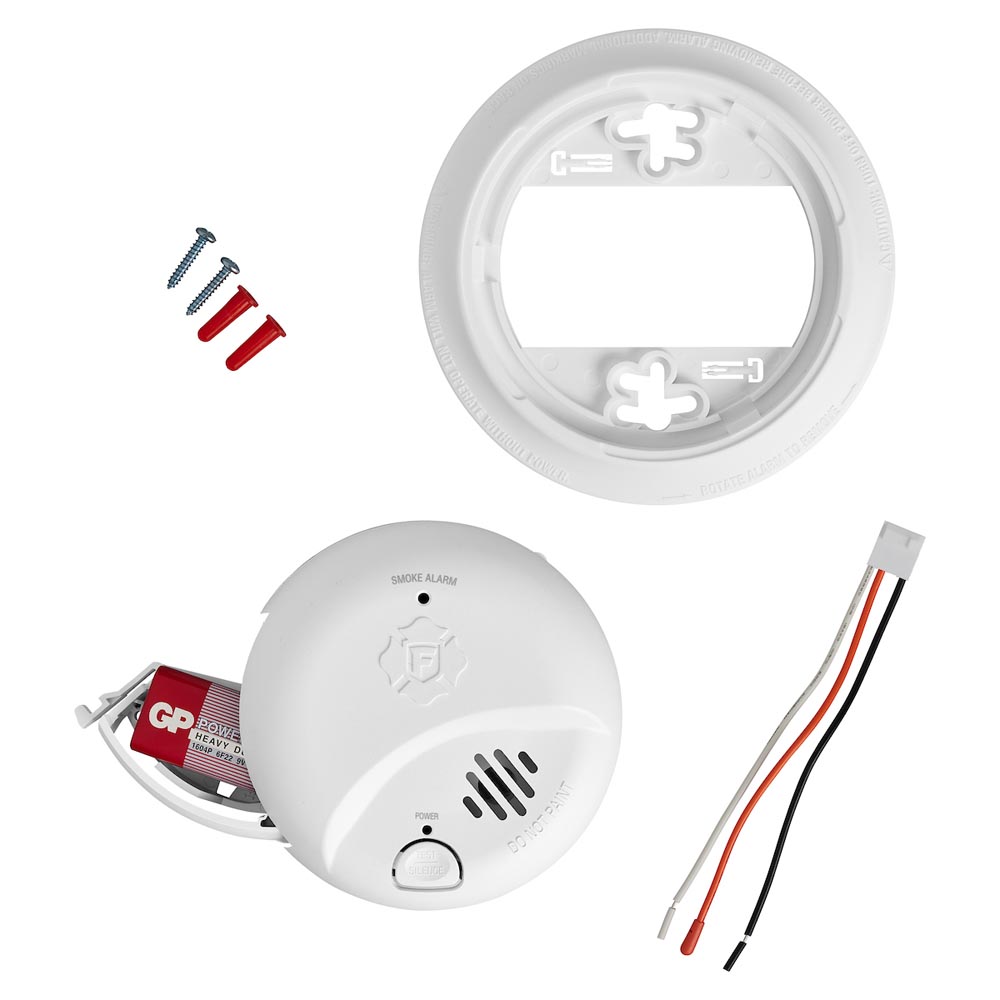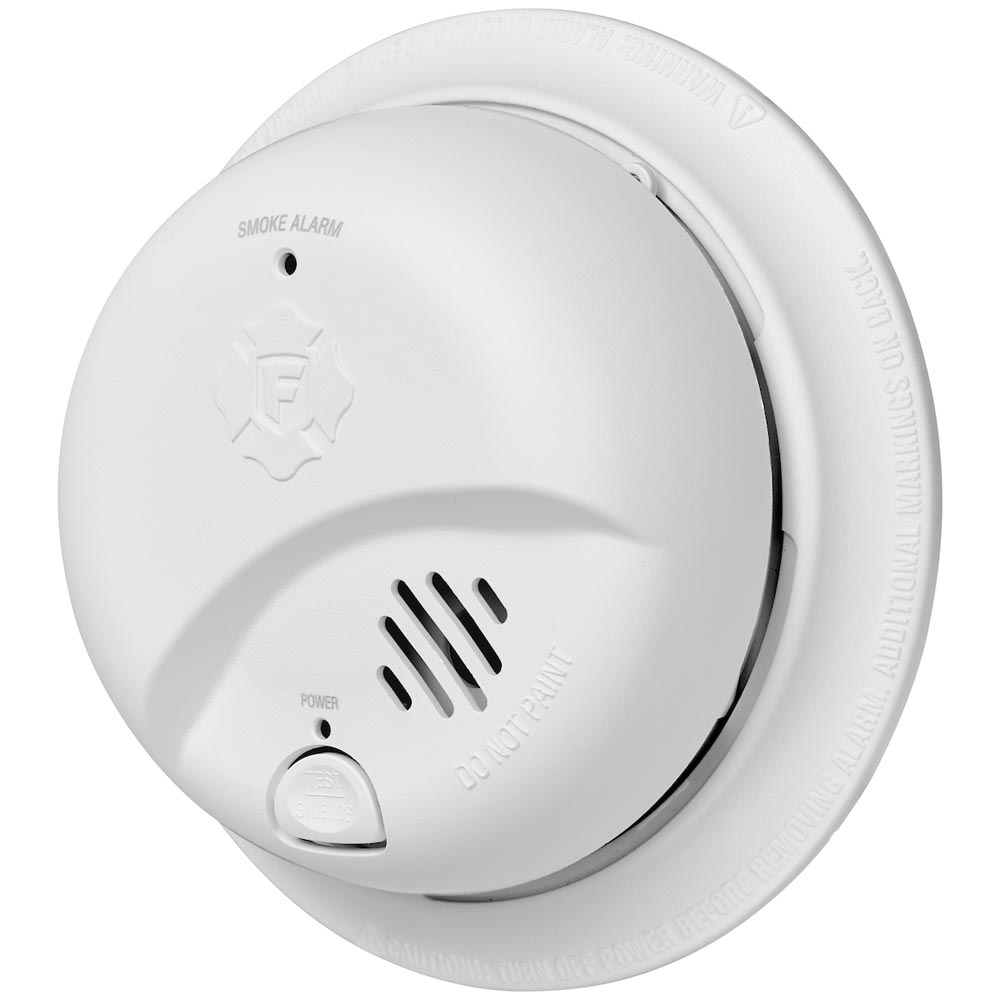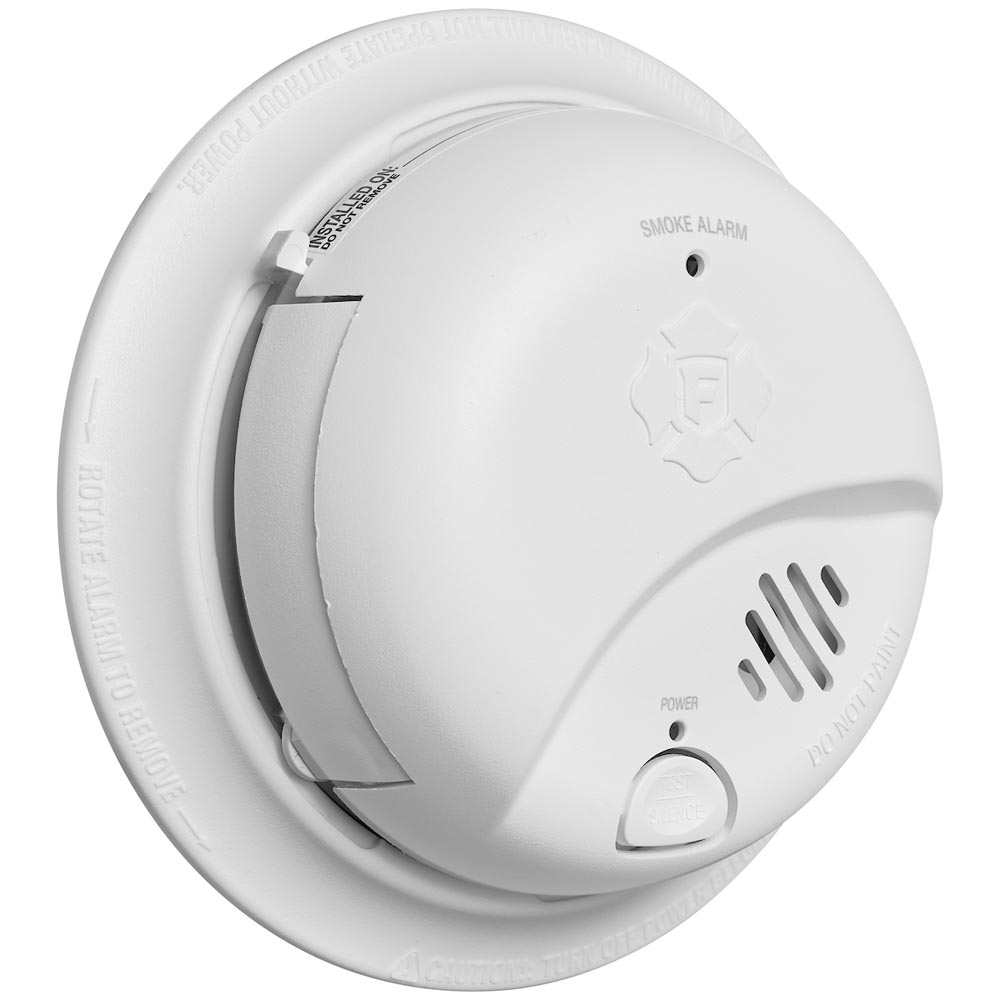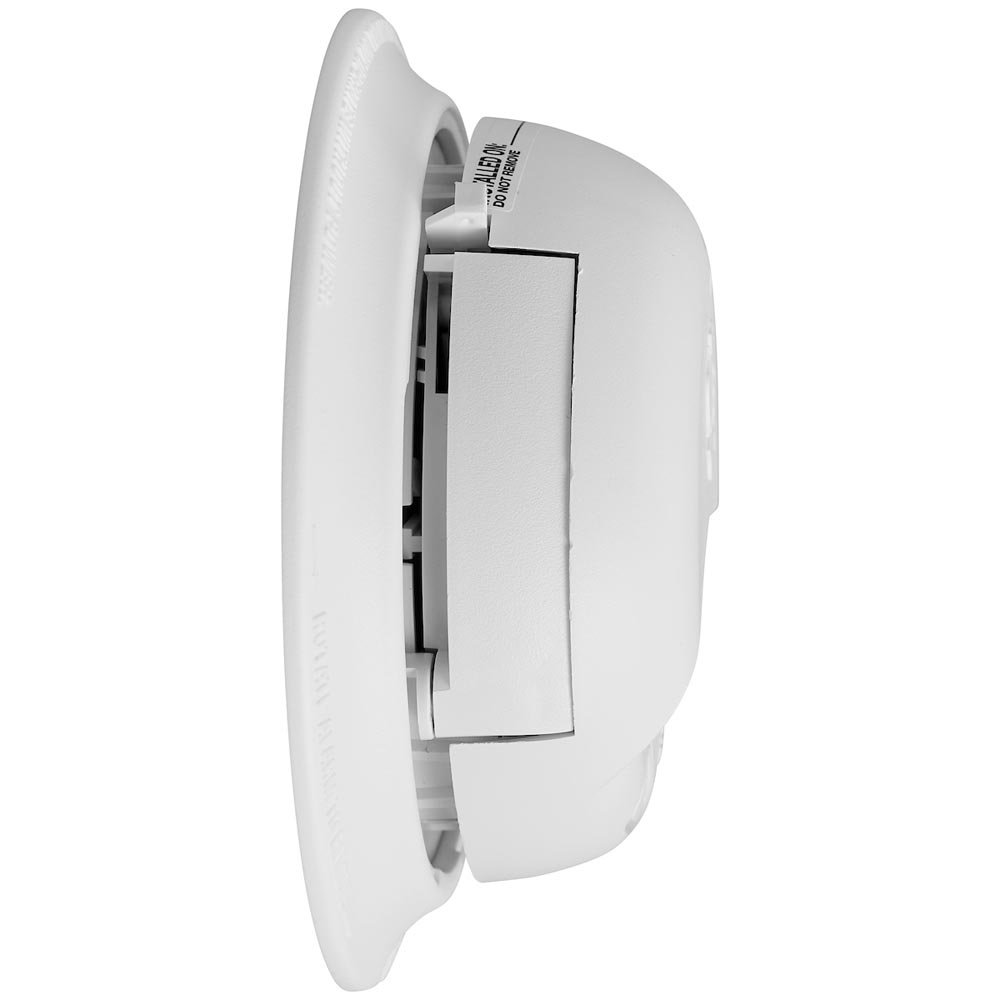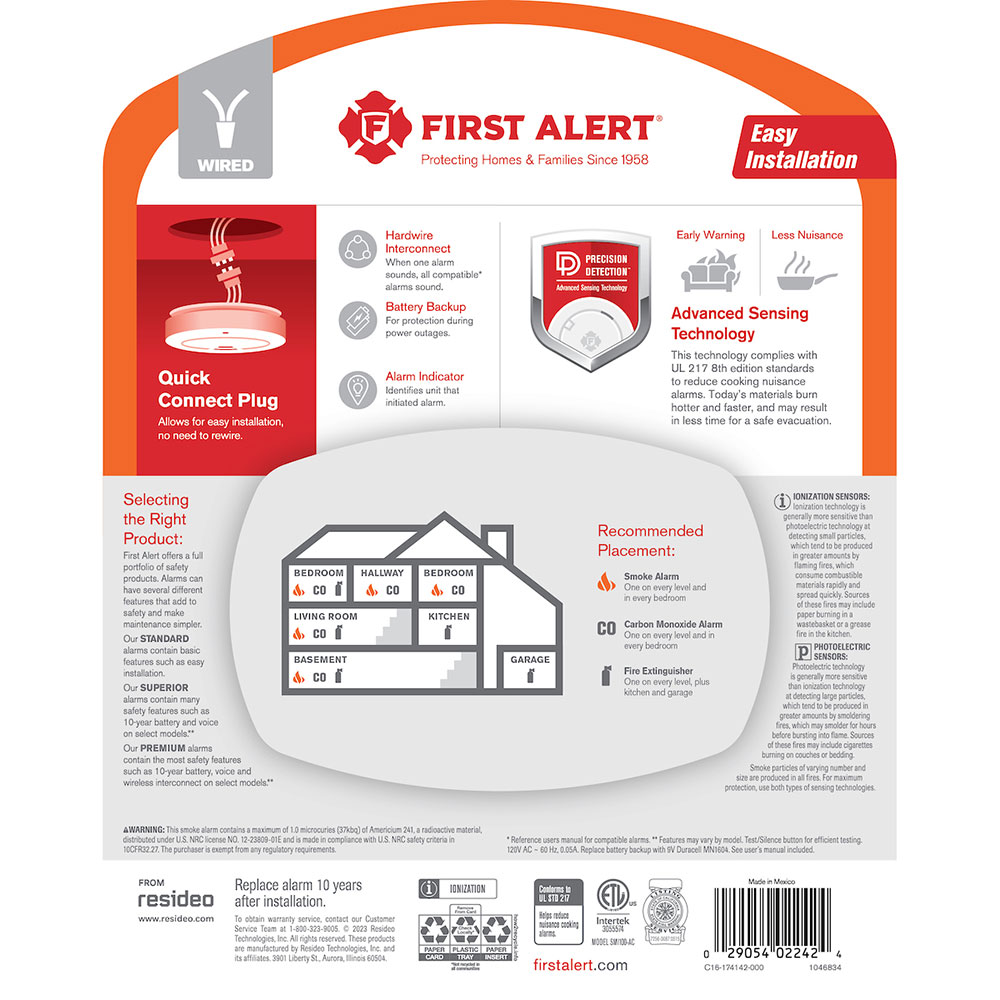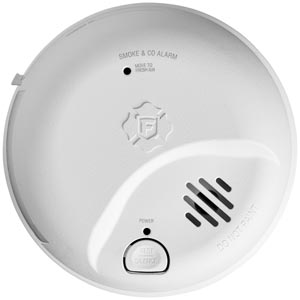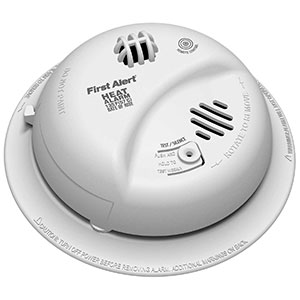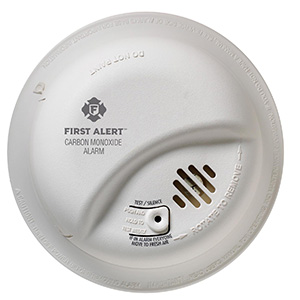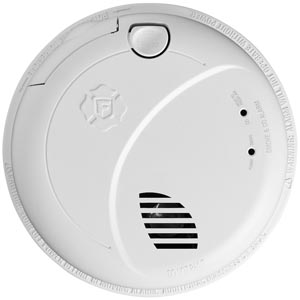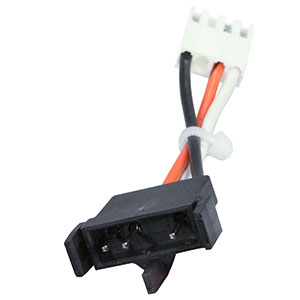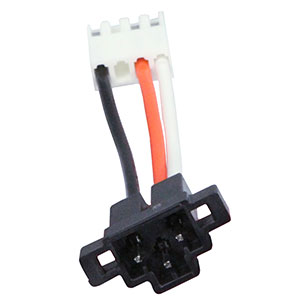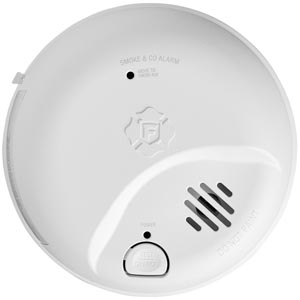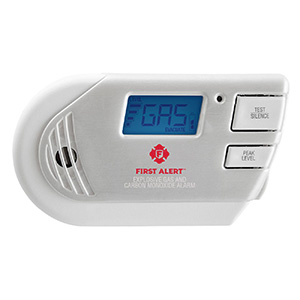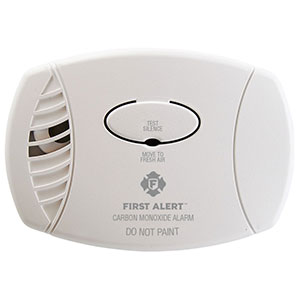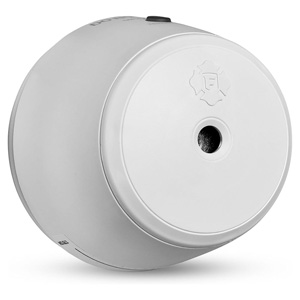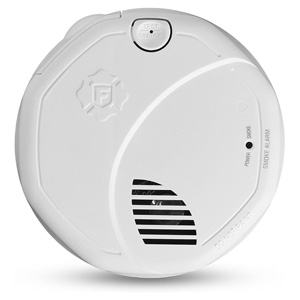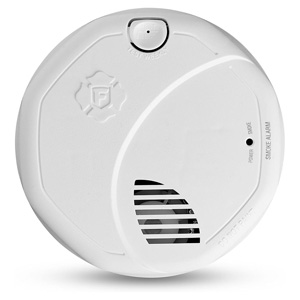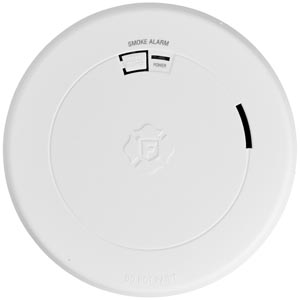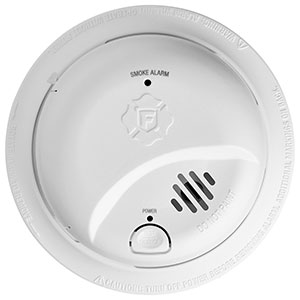First Alert Precision Detection Interconnect Hardwired Smoke Alarm with Battery Backup - SMI100-AC (1046840)
- Complies with new industry standards to reduce cooking nuisance alarms and provides early warning in the event of a home fire emergency.
- Through early warning interconnect, when one alarm sounds, all compatible alarms will sound
- Battery backup provides continuous protection during power outages
- Alarm indicator visually identifies the unit that initiated the alarm
- Quick Connect Plug included allows for easy installation with no need to rewire
- Test/silence button for efficient testing to ensure detector is working properly
-
First Alert 8th Generation Smoke Detector meets the latest industry standards.
Interconnect Hardwired Smoke Alarm with Battery Backup
The First Alert SMI100-AC Interconnect Hardwired Smoke Alarm with Battery Backup meets new industry standards utilizing First Alert's Precision Detection advanced sensing technology. This hardwired smoke detector is easy to install. There is no need to rewire when installing this smoke detector. Interconnect compatible alarms create a whole home alarm system to help provide an early warning.
Early Warning Interconnect
In addition to functioning independently, connect multiple hardwire detectors together to create an alarm system throughout your home. When one interconnect alarm sounds, all connected detectors will sound to help provide an early warning and time to safely escape. Integrate with up to 12 other First Alert or BRK detectors and 6 other compatible devices. Please reference user's manual for compatible alarms. If the alarm system sounds, the latching alarm indicator will visually identify the unit that initiated the alarm.
Hassle-Free Installation
Easily install and replace existing hardwired smoke alarms by using the hardwire quick connect plug. There is no need to rewire into your home's electrical system. Although the First Alert SMI100-AC interconnect smoke alarm is designed for hardwired installation, it also features a battery backup to help provide continuous protection in the event of a power outage. Discourage unauthorized removal of the backup battery or alarm by using the optional locking features.
Easy to Maintain & Test
Use the test/silence button to test smoke detector regularly. This will help ensure it is working properly and also silence false alarms. A low battery alert will let you know when it's time to replace the backup battery and the end-of-life warning will let you know when it’s time to replace this 8th generation smoke detector completely. See user's manual for information on how and when to test and replace alarms.
Upgrade to 8th Generation Alarms
First Alert's Precision Detection Advanced Sensing Technology meets the latest safety standards set by UL 217 8th Edition. This means this smoke alarm is better at distinguishing between harmless cooking smoke and real fires. Additionally, 8th edition smoke alarms can detect smoke from burning synthetic materials, which are common in modern homes. This translates to fewer bothersome false alarms and a crucial early warning in case of a fire emergency.
First Alert Interconnect Hardwired Smoke Alarm with Battery Backup SMI100-AC
Recommended replacement for the following model:
9120B
How to Install First Alert SMI100-AC Precision Detect Hardwired Smoke Alarms:
In this guide, we'll be showing you how to install First Alert Hardwired Smoke and Carbon Monoxide Alarms. Here are a few items you'll need before starting the installation process: Needle-nose pliers or utility knife, screwdriver, wire stripper, wire nuts and a ladder.
Hardwired Smoke or Carbon Monoxide Alarm Requirements:
- 120V household electrical circuit (unswitched 120VAC)
- Standard wiring junction box to a 4 in. (10 cm) size, on either the ceiling or wall
- Selecting an appropriate location to install your smoke and carbon monoxide alarms (see below guidelines for additional information):
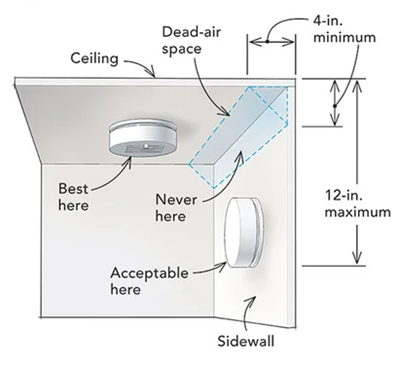
- When installing an alarm on the wall, the top edge of an alarm should be placed between 4 in. (100 mm) and 12 in. (300 mm) from the wall/ceiling line.
- When installing an alarm on the ceiling, place the alarm as close to the center as possible.
- In either case, install the alarm at least 4 in. (100 mm) from where the wall and ceiling meet.
- First Alert Smoke Alarm FAQs
- First Alert Carbon Monoxide Alarm FAQs
Connecting First Alert Hardwired Alarms to 120V Wiring
To begin, turn off power at the junction box and connect your alarm to the building's electrical wiring.
- Locate the junction box and turn off power
- Remove the power connector from the new alarm's packaging
- Using wire nuts, attach the hot (black), neutral (white), and interconnect (orange) wires
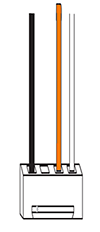
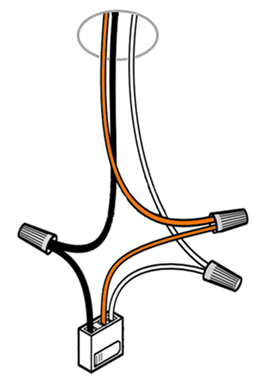
| Black wire (hot) |
Attach to black wire on power connector |
| White wire (neutral) |
Attach to white wire on power connector |
| Orange wire (interconnect) |
Standalone (single-station) alarm: This wire is not needed; tuck the orange wire into the junction box. Interconnected alarms:
|
Mounting First Alert Hardwired Alarms
- Secure the mounting bracket to the ceiling or wall using screws (included in the package)
- Insert the power connector into the plug on the back of your alarm
- Tuck any hanging wires into the junction box
- Position the base of the alarm onto the bracket and turn it clockwise until it's secured
- Remove the pull-tab to activate the backup battery
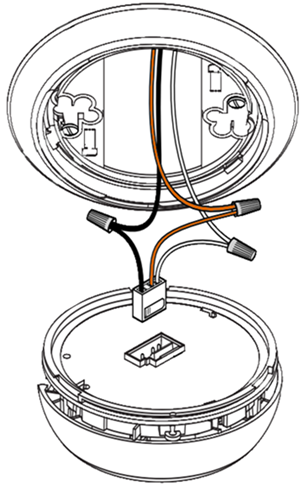
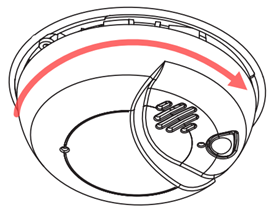
Installing Additional and/or Interconnecting First Alert Hardwired Alarms
If you are installing more smoke or carbon monoxide alarms, you'll want to repeat the process throughout the building. Interconnected smoke and co alarms must meet all requirements:
-
The same fuse or circuit breaker must power all interconnected alarms.
-
Up to 18 compatible detectors can interconnect, with a limit of 12 smoke alarms.
-
The total length of wire interconnecting the alarms should be less than 1,000 ft. (300 meters). This type of wire is commonly available at hardware and electrical supply stores.
-
All wiring must conform to all local electrical codes and NFPA 70 (NEC). Refer to NFPA 72, NFPA 101, and your local building code for more information.
-
Interconnect wiring diagram:
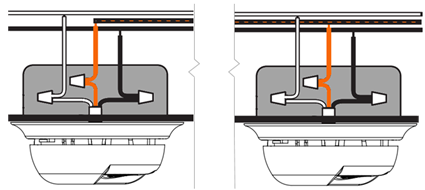
If you have any doubts or reservations about these interconnect requirements, please contact an experienced electrician to install your wiring and hardwired alarms.
Restoring Power and Testing Hardwired Alarms
Once you've installed your hardwired alarms, you'll want to restore power to the junction box. Under regular operation, the power indicator light on the alarm will shine/blink to indicate that it is receiving AC power.
Here's how you can test standalone or interconnected alarms:
-
Standalone Alarms: Press and hold the Test/Silence button until the unit triggers an alarm.
-
Interconnected Alarms: Press and hold the Test/Silence button until the first unit triggers an alarm. All interconnected detectors should sound off. Repeat this process to test each alarm in the interconnected series.
UL Solutions has updated its smoke alarm standards requiring smoke alarm manufacturers to meet new requirements by June 30th, 2024, to reduce nuisance alarms and detect smoke from synthetic materials. This update is known as UL 217 8th Edition and helps to improve fire protection for modern homes. As a leader and the most trusted brand in fire safety*, First Alert has introduced Precision Detection advanced sensing technology to meet new UL 217 8th Edition industry standards. First Alert Precision Detection Smoke Detectors and Combination Smoke and Carbon Monoxide Alarms are available for online purchase at the First Alert Store.
*First Alert Brand Trust Survey, March 2023 – Results are based on the responses of 1,043 adult homeowners, ages 25 and older, living in the United States who completed an online survey asking them to choose from six brands in the smoke, fire and carbon monoxide protection space.
Smoke alarms can beep for to the following reasons:
- Low Battery: This is the most common cause. Most smoke detectors use a chirping sound (usually a single beep every 30-60 seconds) to warn you that the batteries are running low and need to be replaced. Don't wait until the alarm is silent - replace the batteries right away to ensure your smoke alarm continues to function properly.
- End of Life: Smoke alarms don't last forever. If your smoke detector is beeping constantly or in a different pattern than the low battery chirp, it may be nearing the end of its intended lifespan and should be replaced altogether.
- UL Certifications: UL 217 8th Edition
- Sensor Type: Ionization
- Power Source: Hardwired
- Number of Batteries: 1
- Battery Replaceable: Yes
- Battery Backup: Yes
- Backup Battery Type: 9V Alkaline
- Hardwired Interconnectivity: Yes
- Sound Level: 85dB at 10 ft.
- Replaces Model: 9120B
- Warranty: 10 Year Limited
- Product Dimensions (LxWxH): 5.6 x 1.9 x 5.6 in.
- Product Weight: .6 lbs.
If you are interested in ordering a large quantity of items you may qualify for volume pricing discounts. Volume Discount Pricing is a great way for customers to save big on large, bulk orders of most items available in our store. Please send a bulk order request to our friendly sales staff so they may create a quote and provide personal service for your order! You will receive a response within 1-2 business days and our office hours are Monday through Friday, 8am-5pm CST.
- Let us know what products & the quantities you are interested in.
- Get a detailed quote from a dedicated sales rep.
- Our warehouse ships directly to you.
- You enjoy the savings & are now a preferred customer.

Precision Detection Interconnect Hardwired Smoke Alarm with Battery Backup Reviews
It was time for new smoke detectors, they had been in service for 10 years +, they were starting to have problems.
works great, fit in old base plate
Replaced all 6 of my aging 9120 alarms with this model. Same plug fitting an same mounting bracket so it was about as easy as it gets. I recommend the First Alert Store to all my friends as they are the only retailer I know of that actually takes the time to help you on the phone and answer your questions in English.
The Smoke/Carbon Monoxide detectors I bought from the First Alert Store work great. Perfect fit to existing mounting brackets. AND... $40-$45 each cheaper than the big Home centers.

